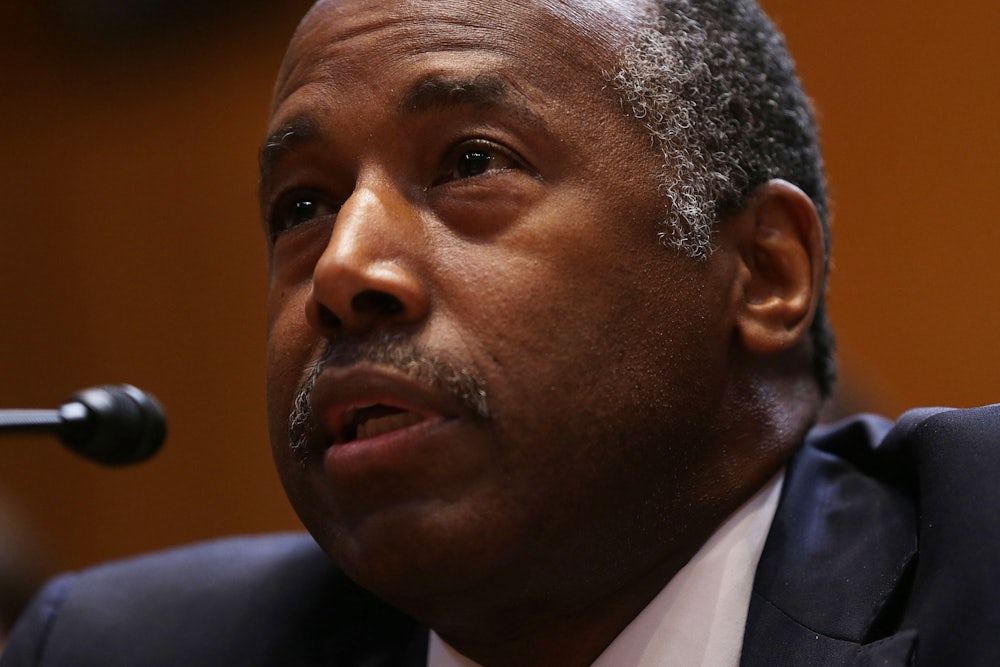The secretary of Housing and Urban Development’s answer drew laughs from the crowd at a Wednesday event in downtown D.C., but it illustrated a serious point: One month after Hurricane Maria ravaged the U.S. territory, the federal government doesn’t know how long it will take for Puerto Rico to achieve a full recovery. “We will be there until the conclusion, which will be years from now,” Carson said, responding to a question from The Hill’s editor-in-chief Bob Cusack about HUD’s efforts to rebuild public housing, fix ravaged businesses, and support displaced families on the island.
The Hill billed Wednesday’s event as an opportunity for Carson to answer questions about “housing needs in hurricane-ravaged regions,” as well as HUD’s future policy priorities for low-income housing. But the 30-minute discussion often veered into politics. Cusack asked Carson questions about Senator Jeff Flake’s resignation, the media’s treatment of President Trump, and whether Carson would ever run for office again. Carson also addressed criticisms that he’s not qualified to lead the housing agency because he’s a pediatric neurosurgeon. “People are so stupid,” he said, arguing that hospital CEOs probably don’t know much about infectious diseases or surgery. “But they have a lot of people who do know,” he added.
Those diversions meant that many questions about Puerto Rico were left unasked and unanswered. Among them: Will HUD rebuild all the thousands of federally subsidized housing units that were damaged, or just some? What will the process for distributing funds to homeowners look like—will grants be based on the value of the home, or the amount of damage leveled? Will HUD allow homeowners with mortgages insured by the Federal Housing Administration to suspend their mortgage payments while they rebuild? The Center for American Progress has a helpful guide to the many challenges HUD, and Carson, will face in the U.S. territory.
Carson did, however, appear to grasp that rebuilding is going to be a costly process—and that future structures must be more resilient to extreme weather. “We need to start re-thinking; how do we remediate after a flood, and after a hurricane?” Carson said. “We need to do it in a way that we protect ourselves in the future.” Indeed, there appears to be growing recognition in the White House of the suffocating cost of these disasters. As Politico reported on Wednesday, the Trump administration expects yet another disaster relief bill in the tens of billions to be passed before the year ends, in addition to the $36.5 billion and $15 billion packages that have already been approved.
But while Carson spoke of smarter building practices, he did not mention human-caused climate change as the core reason why federal agencies should re-think those practices. Carson’s cluelessness about Puerto Rico’s recovery time was a bit cringeworthy, but his failure to identify this costly challenge is a much more dangerous form of ignorance.
